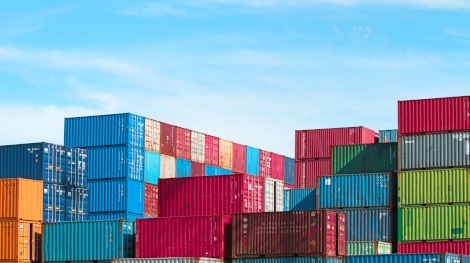Importing to the U.S. is complex but importing food adds another level of complication and if you do not have the experience and understanding of clearing food goods it can be an absolute minefield. Lack of experience and understanding leads to delays and unexpected costs in your food supply chain. Having a customs broker can really save you time and money.
Expect your customs broker to ask for information/paperwork well in advance of your shipment to avoid any delays. Your custom broker needs to have very detailed information about your specific product to ensure that all the paperwork is prepared for exportation.
When speaking to a customs broker, it is very useful to have a basic understanding of the different type of custom entries for your food products that way you able to ascertain what entry is the best fit for your business.
- INFORMAL/ FORMAL ENTRIES
These are your general customs entries. Informal entries have a value of under $2500 on general commodities
- Warehouse Entries
These are entries where you can bring freight in but have it held in a bonded warehouse without paying duties for a period of time. Importers can then withdraw and pay duties as they would like.
- IN-BOND Entries
An in-bond entry can move your freight in the country to different ports without filing the entry and paying the duties until it reaches a specific port.
- Temporary Imports Under Bond
Say you have some equipment you want to bring in and use but it will be exported within a year. This is where a TIB might be helpful. If you file everything as required, the freight will be free from duties.
- Continuous Bond
A bond is needed for any importation into the U.S. It is really like insurance that customs require in case something goes wrong. IF you do not pay duties or a penalty custom knows they will get the money due from the bond company.
Have a new product and you are not sure where to start in terms of customs and compliance? Custom brokers will often offer an import consultation. The broker approaches all relevant government agencies to ensure that all your bases are covered.
If customs are unsure or you want 100 percent guaranteed confirmation sometimes a binding ruling is recommended.
Binding rulings - It is exactly what the name states. It binds a classification to your product. No questions and gives complete clarity on where your product is classified.
What if mistakes are made?
Post entry amendments & protests - These can be done well after entries are filed. This can fix any mistakes on a previous entry. In most cases, we deal with it’s usually where the importer is due a refund. A post entry amendment is done if an entry has not liquidated. After about a year, entries generally liquidate, and you then have a 180-day window to file a protest.
Compliance issues - This can come in many shapes and forms. An example would be of an importer receiving a penalty from customs. You get a penalty in the mail that is usually large and scary. Most of the time, if you have a valid reason for an issue that caused a penalty, a petition can be written for mitigation. Mistakes happen and misunderstandings happen. Customs can be understanding. Believe it or not, they also want entries to go smoothly as well.
If you would like any assistance with your FDA/USDA food commodities (including perishables) visit www.wtagroup.com/exports-to-the-usa






